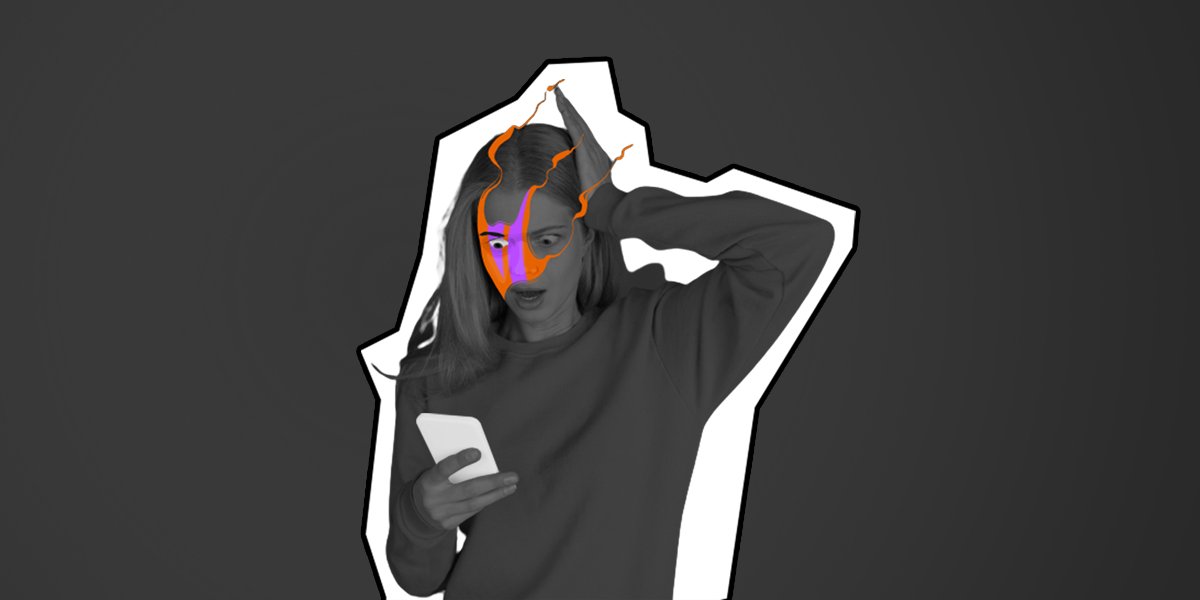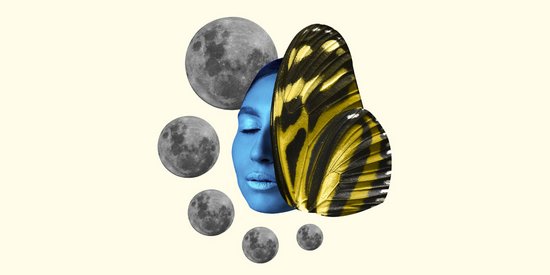Maybe you are one of those people who unknowingly practice doomscrolling?
Doomscrolling is a relatively new concept, and one which has gained considerable attention in mental health research in recent years.
To look at this, we have approached Nathalie B, a CBT therapist and psychotherapist specializing in addictions, in order to broaden our horizons regarding this practice, which is apparently quite common.
WD: Nathalie, could you explain to us what doomscrolling is?
Nathalie B: You have probably guessed that the word doomscrolling comes from the contraction of the English terms “doom” meaning calamity, and “scrolling.”
This refers to compulsively scrolling through negative content on our laptops or PCs. Two researchers from the United States National Library of Medicine in the United States conceptualized doomscrolling as "a habitual, immersive scanning of timely negative information on social media news feeds". It is particularly characterized by research with or without a specific goal, with an excessive focus on negative information.
Doomscrolling is the process of scrolling through negative news articles, social media posts, or on other content-sharing platforms. Essentially, it's about reading one negative story after another. A Canadian study even called this phenomenon “social media panic”.
It should be said that these days, Internet users are helped to access this kind of content very quickly, as the algorithm of social networks is studied in this way. "Social media algorithms emphasize negativity, which causes our bodies to produce stress hormones, such as adrenaline and cortisol." Unfortunately, I have seen that “bad” stress and therefore anxiety, create instability, both imperceptibly and quickly, from one individual to another.
WD : How did this phenomenon take hold so insidiously?
Nathalie B: it is important to remember the context between Covid, the Ukraine, the climate...: contexts which are conducive to anxiety and depression.
You know that every person is very different from the others, so let’s imagine that we have two groups of people: Group A and Group B.
In group A, when people are faced with difficult news, they simply stop watching the news,
because the flow of information has become too stressful. In this group, some people have decided to cut themselves off from the media. It’s a question of survival.
In group B, many people spend their time, sometimes even when they have just woken up, scrolling aimlessly on their smartphone on the lookout for new information that is often negative, sad or anxiety-provoking. This is so that they are informed about current events and obtain as much information as possible on a subject that is close to their heart.
FM: Would you say that this has an impact on mental health?
Nathalie B: Unfortunately not only on mental health…. Doomscrolling also causes hormonal reactions such as adrenaline or cortisol. This evolutionary mechanism releases a cocktail of hormones in the body to help us deal with dangerous situations, by temporarily boosting our physical abilities.
The long-term activation of this mechanism can lead to chronic exhaustion, digestive problems, cardiac issues, anxiety disorders or high blood pressure. The consequences on mental health can be really detrimental, especially for young people.
Doomscrolling affects more people than we might imagine. According to a study conducted by Bryan McLaughlin for Texas Tech University, analyzed in the Guardian, 27% of respondents reported "moderately problematic" levels of news consumption and 17% suffered from " very problematic” consumption. For this most severe level, 74% reported having mental health problems and 61% reported experiencing physical problems.
Scrolling through tragic news all day can erode our sanity, that's for sure. However, watching the same information on a loop gives the same results.
I find it incredible how the media now grabs hold of a subject to make it as tragic as possible! This management of ratings which is present on social networks also does not help matters. Coming back to mental health, the link between anxiety-provoking information and anxiety can be likened to a form of addiction. It is now fully proven that stress can lead to addictive behavior. For me, doomscrolling is a form of cyber addiction, where attention is focused on the need to amplify and feed this stress.
WD: So then, is there a way out?
Nathalie B: Of course! Reliance on social media more than on yourself is a huge problem. Learning to be yourself again by detaching yourself from the media can be done gradually, with short-term therapies, known as CBT.
In today's world, it is very difficult to separate human beings from their many electronic devices. The use of devices has gradually started to take over the world and it is not about to stop! Learning to live is a solution. It is very obvious that feeding fears sometimes remains unique to humans. And it is with their fears that they will have to learn to get rid of these by avoiding assumptions…. Media anxiety is the favorite tool of journalists!









